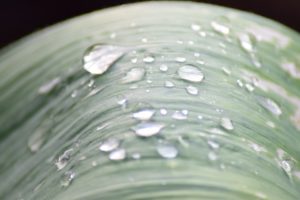 Water is vital, but for many regions an inaccessible resource. That is why, in recent years, developers from different countries have paid more attention to technologies of fresh water production. Solutions are proposed based on the desalination of sea water, and also various devices for extracting moisture from the air are also produced.
Water is vital, but for many regions an inaccessible resource. That is why, in recent years, developers from different countries have paid more attention to technologies of fresh water production. Solutions are proposed based on the desalination of sea water, and also various devices for extracting moisture from the air are also produced.
Located in the Indian city of Hyderabad, the Uravu startup demonstrated its development under the name Aqua Panel, which is also capable of producing water from atmospheric air. Fully autonomous “aquapanels” use the energy of warm sunlight to condense the usual mist into water suitable for use. The company promises that in free sale these panels will appear in two years.
“You will not need any drives, nor electricity,” explains the co-founder of the startup. – This is a device for passive water collection, which can be put on, for example, on the roof, and it will independently extract water for you. The process is started every night, and in the morning you will have fresh water at your disposal. ”
Uravu is a word in the Malay dialect, which is translated as “source”. The inventor of the Aqua Panel recognizes that the technology itself is not new, but the predecessors had weaknesses: “Electricity and a fairly high humidity were required for work, and the devices had a lot of moving elements that went into disrepair and required replacement. We came up with a more compact and simple modular device. ”
The principle of the Aqua Panel is based on the fact that in the atmosphere there is always a percentage of moisture that is used. Unlike seawater, moisture from a fog should not desalinize, and in contrast to the rain (which still needs to wait), “air” moisture, albeit in a small volume, is always available. In the case of Uravu, only a removable mineral cartridge will be required to get potable water.
The active sample produces about 50 liters of water per day, but the company hopes to further refine the panels to produce up to 2000 liters per day. Devices for the passive collection of moisture are extremely in demand in the arid regions of India, so the panels will be produced for household needs and for the needs of agriculture.
Picture Credit: LeonaB
